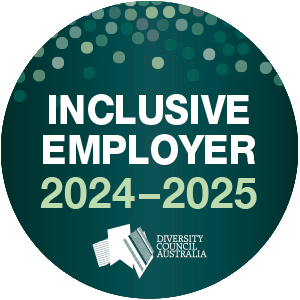16 October 2020
16 October 2020
No to Violence thanks the committee for inviting No to Violence to appear today.
We note that there has seldom been conversation around the people who are using family violence throughout these hearings.
This is not a criticism, rather an observation about the general discourse around family violence.
Of course, a focus on victim survivors is essential and so important.
However, we believe the rates of family violence will not reduce unless we address the core problem – which is the people who use violence, which are disproportionately men.
These are the people No to Violence, and our members across Australia, work with every day.
No to Violence has three functions:
- We are Australia’s largest peak body for organisations that work with men who use family violence.
- We provide professional development and training to workforces that work with men who use violence, making sure workers have the skills and understanding to address this issue.
- And we operate the Men’s Referral Service, a telephone and online counselling and referral service that speaks every day to men who use violence – think about this as the yin to 1800RESPECT’s yang.
We believe that children are not born violent. Children do not need to turn into violence men. It is a learnt behaviour. Boys are not inherently violent or aggressive. Men are not born this way.
I hope all committee members would agree that men are not inherently violent. These are behaviours and actions which are built into men through societal structures, expectations, and trauma.
We all know there is a better way.
And we fundamentally believe that men who use violence can change.
This is why we come to work every day – because we have hope.
But hope is not enough.
Approaches to respond to men’s family violence across the country are needed. The fact is, across many parts of the country there is no support available.
Of the support that is available, there is a lack of investment to enable innovation and wrap around supports that respond to individual men’s needs.
The way we are currently expected to respond to men’s family violence assumes that perpetrators are a homogenous group.
We know this is not the most effective way of doing this.
Just like you and me, perpetrators have different life experiences. They have different trauma, backgrounds, upbringing, cultural heritage.
We need programs that are able to respond to these differences so they are the most effective to prevent family violence in the future.
We need these programs to be as effective as possible to improve victim safety.
Family violence must be considered core business – not just for state governments, not just for federal governments, but for everyone.
I’m certain that the Committee has heard the statistics countless times across these hearing and in the submissions – there is a huge cost from violence, in police, social and health services, and court budgets.
But even worse, there is the impact we can never put a price on – the long term trauma of victim survivors and their families, the sense of safety and autonomy, the time and dreams lost, and sometimes lives lost.
These statistics demonstrate that family violence is a whole of community issue.
And for this to be realised, Government needs to acknowledge that family violence is core business.
No to Violence is calling on the Commonwealth Government to take this lead. We are calling for National Agreement or National Partnership on Family, Domestic and Sexual Violence.
This needs to fall under the Intergovernmental Agreement on Federal Financial Relations, like other critical issues such as health, housing and infrastructure.
Admittedly that places a lot of faith in an instrument of government, but it through these processes the roles of every level of government is defined.
Governments must seriously enter negotiations around coordination. Governments must be accountable for the part of the system they are accountable for. Governments must set out how they are going to work together to have a coordinated system focused on improving the lives of people who experience family, domestic and sexual violence.
The current National Plan is primarily a Commonwealth document and does not demonstrate intergovernmental coordination. It is endorsed by state and territory governments, but in reality, they have their own responses and aren’t heavily engaged in the implementation of the action plans.
This is not a criticism of the National Plan, rather an indication that the sector and community has moved on since its commencement, and so too must the national plan. Family violence must be elevated to core business.
Our vision at No to Violence is one in which funding is agreed; there is transparency around funding levels and baseline responses; there is monitoring of the impacts and long term research into the impact of our programs and how we can continue to eradicate the scourge of family violence in every suburb, town and community in Australia.
To do this family violence needs to be elevated to the levels of Health, Housing, or Infrastructure – because it is core business for this nation.
I am proud to represent, along with the other members of my team, No to Violence today – we have worked directly with men who use family violence for 25 years and represent organisations across the country who every day are working to make the lives of victim survivors safer.
We look forward to answering all of your questions today.








